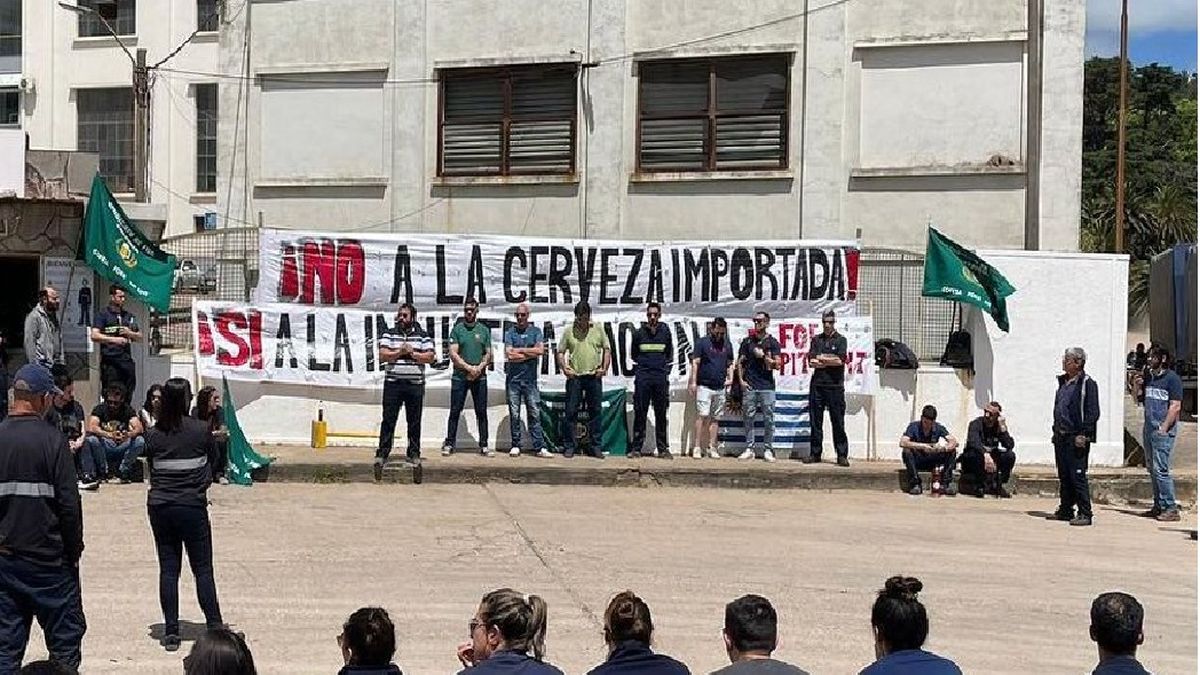At the end of April, without it being too obvious (this is part of the value), Punta del Este once again brought together a good part of the most important businessmen in the region. At a meeting organized by the family Bulgheronicalled “Fathers and Sons”, converged on the peninsula, in the month of April, the Mexican magnate Carlos Slimthe Venezuelan billionaire Cisnerosthe presidents of Avianca and Copa Airlinesseveral other prominent businessmen and -in addition- the former Spanish president, Felipe González. They all arrived with several of their relatives, in a rigid reserve. The meeting confirms – with increasing clarity – that Uruguay It is a prominent and reference place for high-level business meetings in the region.
The latest model jets landed in the Captain Curbelo Airportof Sauce Lagoon, and then the families arrived at the top hotels on the Peninsula. They toured exclusive tourist attractions and exchanged on various family and business matters. Uruguayan meats and wines were the protagonists of lunches and dinners. The meeting lasted 4 days and some had the idea of returning.
It was not the only high-profile meeting in recent weeks in Punta. At the end of March, a group of Brazilian businessmen from the construction sector were at Enjoy, exchanging about corporate experiences in the sector, the regional economy and business opportunities. Directors of companies such as ArcelorMittal, Suvinil, Alliance Metallurgical, world Yes.TO and Viapol, They were present. On this occasion, attendees were offered the “Great Tour of Terroirs of Uruguay“, an exclusive tasting of the best local wines. There were, among others, the wines of Garzón (from Bulgheroni), Cerro del Toro, Bouza, Vinos de Mar, Pizzorno, Bouza, Alto de la Ballena and Los Cerros de San Juan.
According to Punta Esteños hoteliers, the agenda this year is loaded with high-profile events, small, medium and large.
Media law
“Whoever believes that Media law It is already approved with the agreement that existed in the Senate, it lacks a lot of political information.” The assertion of a legislator in the Chamber of Deputies, where the project must return with modifications, caught the attention of the group of professionals and businessmen who listened to it. After Town meeting agreed, with the rest of the partners of the official coalition, to introduce, against the clock, a controversial article that alludes to an alleged balance in the information provided by the media, it was thought that the matter, which has been under discussion for years within the official coalition, had was resolved. “It is far from that,” reaffirmed the legislator.
In it Parliament It is understood that the votes in deputies are not yet guaranteed. On the one hand, because there are some pro-government legislators from other parties who do not agree with the aforementioned article. “Although it is an addition that is merely enunciative, it clearly goes against the freedom of expression”, they recognize in the coalition. But the most relevant thing is the position of the Cabildo itself: those of Manini intend – to give their final votes in Deputies – that the Political Party Financing Law. “This would even have a certain logic,” acknowledged a white deputy who is already getting gray hairs from this issue, “because one thing is quite tied to the other (…). Anyway… it’s a bittersweet feeling. On the one hand, the Cabildo continues to complicate the parliamentary agenda until the last few months; but on the other hand, they play their game. And contrary to what many said, they have remained faithful within the coalition even when going through serious crises, as in the case by Irene Moreira (wife of lobbyist leader).”
Indeed, in the Cabildo they know that – although there are many things that are not carried out in the coalition – the elections are approaching and it is almost mathematical that both Colorados and lobbyists have to have a reasonable vote if the ruling party aspires to remain in the government.
FNC and yellow lights
“The issue is not only if they close the plant Mines: what is at stake is whether Ambev (FNC) continues to produce beverages in Uruguay or not.” With this comment, in a serious and concerned tone, an accountant who has been working especially linked to the beverage sector for several years, and has known the problems that the main industrial company in the sector has been dealing with – for a long time. The multinational has a broad presence in the region and accounts for 70% of the local market.
The decision to close the Minas plant, more than a specific matter, is interpreted by some as a first step towards the definitive closure of the beverage manufacturing lines. “It is impossible to sustain this, due to the very high costs and scale issues: the Mines and Plants Montevideo It has been working at less than 50% of its nominal capacity, so it is unsustainable for any company, even charging high prices in the local market and avoiding falling into losses,” added the numbers man.
The dialogue continued in a central office, while the sun set and the news headlines spoke of the negotiations, with the participation of the government. Already in the second round of coffee, a colleague gave a glassy example. “By saving the distance… it is something similar to what happens to Ancap with the portland. The union intends – or intended – to maintain production in Mines and in Paysandu, when neither of the two is competitive with respect to other industries that work with greater efficiency and scale,” he stated. “I think that due to pressure from the unions and with the hope that something will change, we end up falling into the worst solution: completely stopping production; and the workers seem to die with their eyes open…” he lamented.
In it Parliament Ambev directors reiterated what was already being handled publicly: cost problems, scale problems, fiscal pressure problems and the overwhelming arrival of imported production, among other things due to the important exchange delay that Uruguay has. “A group of young leaders arrived at the company, they were not more than 40 years old… It seems that they are relatively new people in the company and that they look at things very differently from the historical industrialists in the company.” Uruguay”commented one deputy. “The feeling that was left is that not only are they not going to go back with the closure of Minas, but they are monitoring all the rest of the activity in Uruguay. It is a yellow light with a siren on,” he warned.
Source: Ambito




